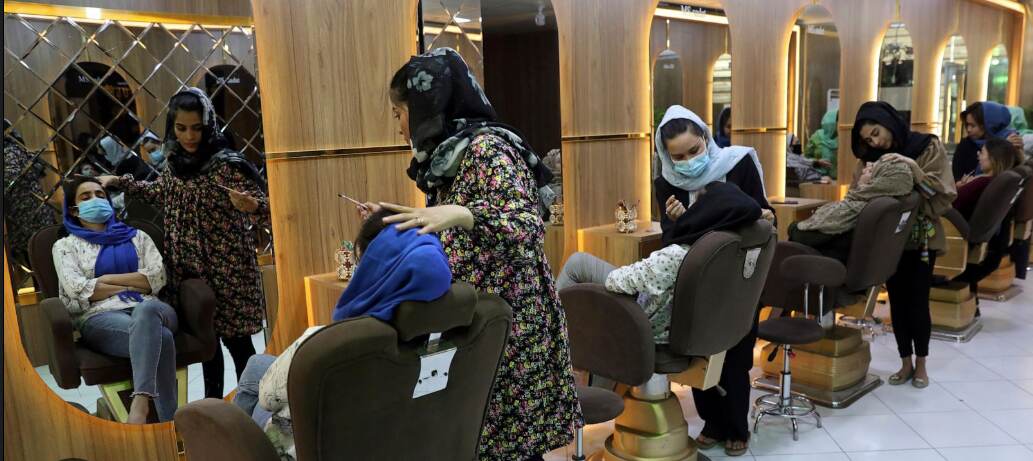Taliban's Beauty Salon Ban Sparks Outrage and International Concern: Afghan Women's Rights Under Attack
The Taliban's ban on beauty salons in Afghanistan sparks public opposition and concerns over women's rights and economic impact, prompting international calls for reversal of the prohibition.
The Taliban has announced a ban on all beauty salons in Afghanistan, despite facing rare public opposition to the edict. The one-month deadline for salons to wind down their businesses has ended, and it remains unclear whether force will be used against salons that do not comply with the ruling.
This decision is the latest in a series of curbs on the rights and freedoms of Afghan women and girls, following previous edicts that barred them from education, public spaces, and most forms of employment.
The Taliban justifies the ban by stating that beauty salons offer services forbidden by Islam and cause economic hardship for the families of grooms during wedding festivities.
The announcement of the ban led to a protest in Kabul, where security forces used force to disperse the gathering. International groups have expressed concern about the impact of the ban on female entrepreneurs.
The United Nations has engaged with Afghanistan authorities in an effort to reverse the prohibition. UNAMA, the UN Assistance Mission in Afghanistan, has called on the de facto authorities to halt the closure of beauty salons.
The UN has stressed that this restriction on women's rights will have a negative impact on the economy and contradicts support for women's entrepreneurship.
The Taliban listed specific services offered by beauty salons that it considers violations of Islam, including eyebrow shaping, the use of other people's hair, and the application of makeup.
Traditionally, grooms' families have been required to pay for pre-wedding salon visits by brides and their female relatives. The ban on beauty salons represents a significant loss for the approximately 60,000 women employed in this industry.
It also eliminates one of the few spaces where women could find community and support, particularly after the Taliban destroyed the system put in place to respond to domestic violence.
Despite initial promises of a more moderate rule, the Taliban has imposed harsh measures since seizing control of Afghanistan. They have restricted women's access to public spaces and intensified media censorship.
These actions have faced intense international criticism while exacerbating the country's already dire economic and humanitarian crisis. The closure of thousands of beauty parlours in Afghanistan not only deprives women of a source of income but also eliminates a space for socializing.
This further worsens the already dire conditions for women and girls in the country, as highlighted by a report to the UN's Human Rights Council.
It is crucial for the international community to continue advocating for the rights and freedoms of Afghan women and girls, and to work towards reversing these regressive measures implemented by the Taliban.




